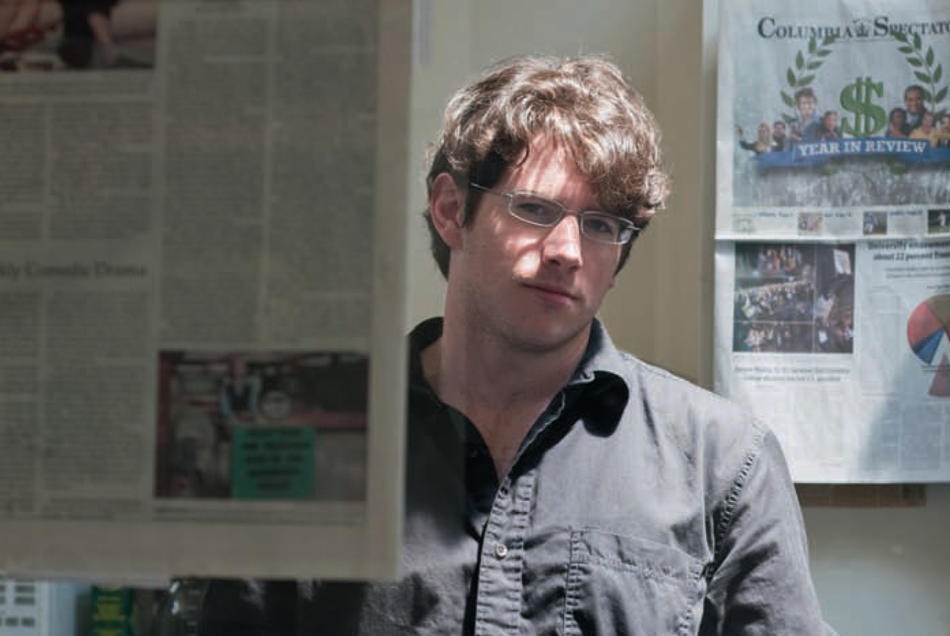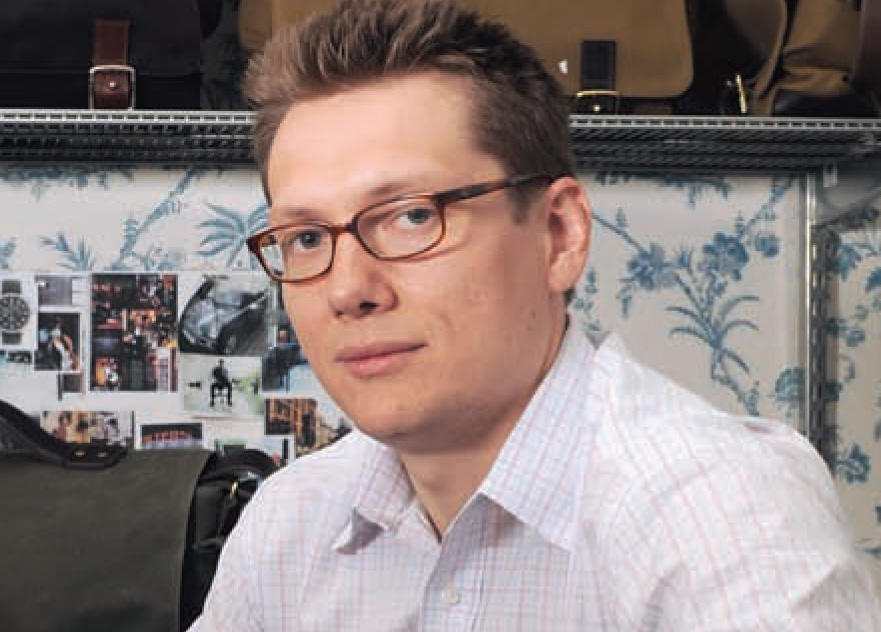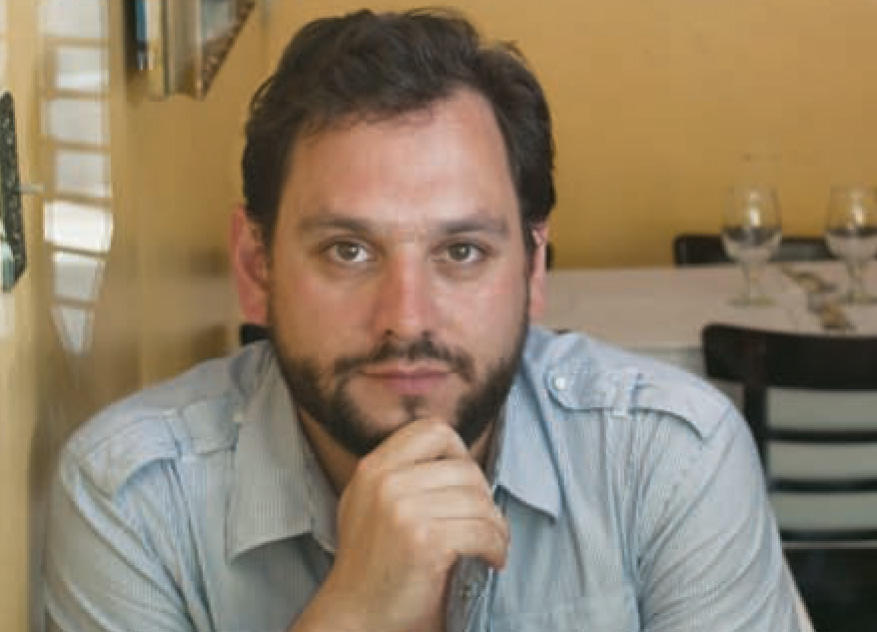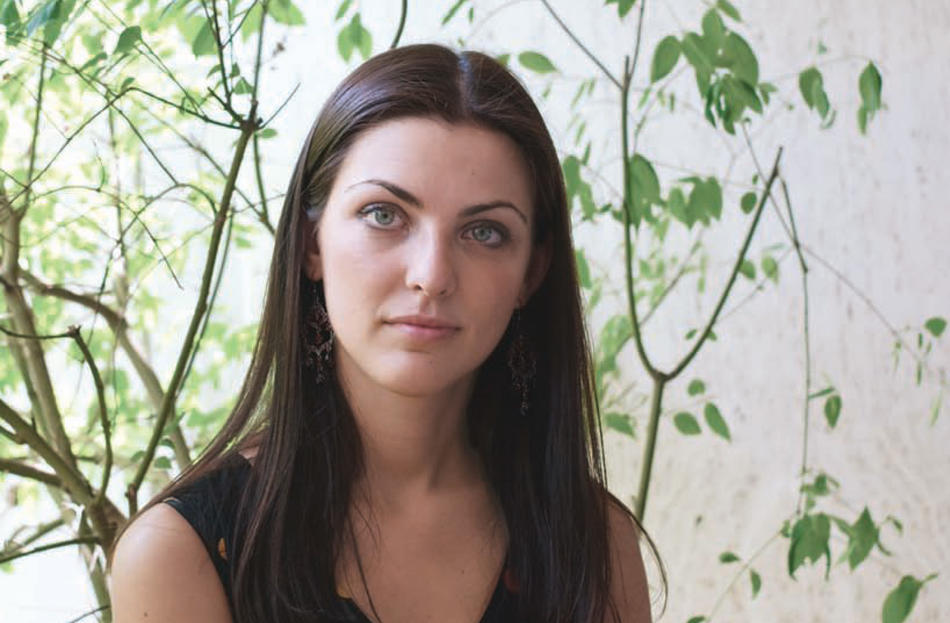
Say you’ve just graduated from Columbia. You’ve accumulated a shocking amount of debt, and it’s the worst job market since the Falklands War. Nearly 1 out of 10 Americans can’t find work. Even more chilling, a survey conducted from February to April by the National Association of Colleges and Employers indicates that less than 20 percent of college seniors who were seeking a job got one. (That’s down from 26 percent in 2008, and more than 50 percent in 2007.)
Meanwhile, Craigslist is a desert. You’ve pretty much given up on the Times. Sure, Twitter and Facebook make networking easier, but they also make it more competitive. Worse, the effortlessness of applying for jobs online has swollen the pool of candidates: even a low-paying position attracts a thousand hopefuls.
So you widen your search to new fields, in new locations, some previously unimaginable. You get a few responses, all of them apologetic. You can’t help but think of the word rejection.
The ink on your diploma isn’t even dry, and you’re beginning to wonder if your parents have rented out your old bedroom.
Of course, you do have your Columbia connections, a built-in base of support that includes alumni, faculty, fellow students, and campuswide career services programs. But with unemployment above 9 percent, will even that be enough?
Columbia talked to five recent grads to get a sampling of the employment challenges facing this year’s 12,000 graduates. Their stories suggest that the old saw “it’s not what you know, it’s who you know” might have a corollary: “It’s not what you know, it’s what you do with it."
“Competition has become so much more intense,” says Meg Heenehan, the executive director of the office of career services at the School of International and Public Affairs. “We tell students, ‘You are your own best resource.’”
So how is that working out?
Tom
Staring down a deadline for vacating his dormitory by noon on the day after commencement, Tom Faure shook off the remains of a night of graduation revelry and set about packing. He piled his belongings into a university-issued blue bin, lingering to savor the last moments of life in his senior dorm. Finally, he wheeled the bin into the elevator, beginning a trek across campus and south on Broadway toward his temporary storage facility: the offices of the Columbia Daily Spectator, where he had risen through the ranks over four years to become editor in chief.
Feeling reflective after the move-out, he returned to campus to sit a while on the Low Library steps, taking in the warm breeze and the sounds of Low Plaza’s fountains for what felt as though it might have been the final time. “I was just sitting there trying to think of nothing, and letting the sights and sounds seep in,” says Faure. The reflections came anyway. “You guide your own path,” he muses, recalling his thoughts that day. “It sounds like a cliché, but it was interesting to have that finally hit me. I sort of realized that I could do anything I wanted, and at the same time I realized how much harder life would be.”
Faure had good reason to feel the weight of the moment. Despite an intensive hunt for a reporting position at roughly 20 newspapers and a late attempt to secure a teaching slot in a public school, he was graduating jobless and moving back in with his parents in Westchester County, New York. “I became the editor in chief of Spec. I did the internships. And I didn’t get a job,” he says.
Adding to Faure’s woes was the state of the journalism industry in general, and newspapers in particular. Those things were in trouble before the economic meltdown.
“Four months from now I’m probably going to ask myself why I didn’t go to grad school, why I didn’t make more networking efforts when I was at Spec. Intellectually I feel that I know so much about the world, and specifically about this industry. And yet I’m going to be doing nothing. Or nothing related to journalism.”
Faure isn’t ashamed of his unemployment. Everyone knows about the tough economy and the massive contractions in the newspaper industry, and that’s made the stigma of moving back home less of an issue.
“I’ve tried to keep a happy-go-lucky, optimistic outer shell,” he says. In fact, Faure tells almost anyone he can of his situation, in the hope of stumbling across a good lead on a contact or a position. “If you don’t first tell people in your various networks what your situation is, they can’t help you.”
Gena
American history major Gena Miller has always enjoyed competition. She was the University’s first All-American field hockey player and, as goalie, had the best save percentage in the nation. She attributes this record as much to the team’s excellent defense as to her own ability.
Playing for the team helped open up opportunities beyond Baker Field. With the economy souring, Miller began to play defense in her own job prospects. While she had long been interested in pursuing a career in law, employment conditions led Miller to consider teaching in a public school. Education seemed to provide a chance to make a difference in the lives of children — to “live my beliefs,” as she put it — and to avoid unemployment. “The fact that it’s a government job was very appealing to me,” she says. “There’s more stability.”
Thousands of college seniors across the country shared Miller’s new interest in teaching, flooding programs like Teach For America (TFA), a two-year fellowship that places recent graduates in disadvantaged public schools. A remarkable 11 percent of Columbia seniors applied to Teach For America, twice the national average.
Fortunately for Miller, her connections helped her stand out from the crowd. A former teammate, Erin Wesseldine ’06CC, had been a TFA fellow, and she put Miller in touch with a Columbia assistant head coach, Carey Fetting-Smith, who had worked in TFA’s New York office. Fetting-Smith encouraged Miller to apply. “She also helped me to believe that I could be an effective teacher,” Miller says.
Miller soon found out that she had been one of the lucky few selected; she’ll be staying to teach at a New York school, but has yet to receive an assignment owing to a flood of new teaching applicants in the city.
This wasn’t the first time the Columbia athletic network came together for Miller. Earlier in college, a career liaison from the athletics department connected Miller with a field hockey alumna who is a staff attorney for New York State Attorney General Andrew Cuomo. That helped Miller get a foot into the internship program in Cuomo’s office, and she spent last summer working with the press department.
“If you want something, if you want any kind of support, you have to take the initiative yourself,” says Miller. “The College is not going to assign you a career services person. Your adviser is not going to contact you. The onus is on you to take advantage of those things. That in itself is a valuable career skill.”
Ernest
Ernest Sabine enrolled at Columbia Business School in 2007 with an eye toward a career as a retail executive. But the financial crisis last fall stymied his job plans. “Everything went to lockdown,” he says. “All the retail jobs went to zero.”
Rather than hang his hopes on finding a corporate position, Sabine returned to an old dream of running his own company. Sure, he figured, the economy was horrible, but that would be a perfect cover if the business failed. “If I can make the business work right now, imagine the opportunities when things get better,” he says. “Why put off my dream?”
Sabine settled on the idea of starting a line of men’s messenger bags — one size fits all, so inventory can be kept to a minimum. Plus, he had a natural market at the business school. He committed himself to marketing his brand, Ernest Alexander, and called off his job search. “I knew in the back of my mind that if I was hedging my bets and looking for other opportunities, I wouldn’t devote all my efforts to making this work.
Sabine found a manufacturer in New York’s garment district and worked with the company to design and produce the first line of messenger bags. He launched a Web site, ernestalexander.com, from which he sells five styles of bags for $225 and up. The B-school’s Retail & Luxury Goods Club helped Sabine organize a spring fashion show at an Upper West Side bar. Champagne flowed, the men’s rugby team modeled the bags, and he has since sold out one of the colors. But the fear of failure persists. “It’s definitely kind of scary,” he says.
Risk taking is part of the business school ethos, as is the importance of building a professional network to fall back on in times of adversity. Two dozen career clubs arrange campus visits for successful alumni and host information sessions with employers, supplementing the school’s well-staffed recruiting office. The school maintains a stable of senior executives as resident advisers, including the former CEOs of Dow Jones and drugmaker Wyeth. The school’s core curriculum includes instruction on personal leadership and building networks of support to succeed in organizations. During the downturn, school administrators encouraged students to become entrepreneurs, citing the stories of Apple, MTV, and Revlon, all of which got started in weak economies.
If the bag business fails, Sabine says, he can count on his classmates and professors to help him pick up the pieces. “Over the the past few years,” he says, “I’ve found that the best way to get a job is to know somebody who knows somebody.”
Jonah
Jonah Engle, a McGill University alumnus who had dropped out of a graduate program in urban planning, moved to New York in 2003 to become a journalist. He worked as an intern at The Nation, translated for a United Nations journal, then traveled across America with the oral history project StoryCorps before taking an internship at WNYC, the New York public radio station. But with all that experience, he still could not count on a steady position as a journalist. Frustrated, and with some reluctance, he applied to the Graduate School of Journalism.
“The past six years had been a process of trying to become a full-time reporter,” says Engle. “I wanted to make it on my own, and I felt as if I had made it as far as I could get.”
Columbia’s program was particularly appealing: it took one year and carried a high level of prestige. “I think a huge part of why I was going was for the connections,” he says. “It was very much a means to an end.
In the master’s program in journalism, students spend much of their first semester on a core class, Reporting and Writing I. Traditionally, students are assigned a neighborhood to cover, but in Engle’s section, taught by Ari L. Goldman, students select an ethnic group. The Haitian community seemed a natural fit for Engle, a native French speaker who previously had lived in a Haitian American neighborhood in Brooklyn. He dived into the beat, writing articles on Haitian bilingual education and attempts by local churches to attract a new generation of congregants who do not speak fluent Creole or French. Overloaded with the coursework, Engle was not even thinking about looking for a job.
Part of the assignment was a survey of the local press, and Engle reached out to Garry Pierre-Pierre, the editor and publisher of the Haitian Times. Engle even did a few freelance assignments for the Brooklyn-based newspaper.
One evening, he got a message from Pierre-Pierre, asking him to call the next morning.
That night, Engle was too nervous to sleep. “I got up at 4 a.m.,” he says. After sunrise, he went off to the Hungarian Pastry Shop to work on his media law assignments, then returned home to call Pierre-Pierre.
“He said, ‘How would you like to be our guy in Port au Prince?’” Engle recalls. “I was stunned. I had always wanted to be a foreign correspondent.”
Researching what life would be like as a reporter in Haiti, Engle turned to another professor, Howard French, who had covered Haiti for the New York Times. “At the end of class I mentioned to Professor French that I had taken this job.” It turned out that Pierre-Pierre had worked with French at the Times’s Haiti bureau when French covered the rise of Jean-Bertrand Aristide and his eventual overthrow.
Engle has lived in China, Indonesia, and Scotland, where his parents taught English. But Haiti poses more than the usual challenges of living abroad, owing to its history of security problems and civil conflict. Engle will also have to learn Creole, the national language. “I’ll be straight up,” he says. “There’s some anxiety, which is as much about the unknown as anything.”
Then again, Engle didn’t get into the business for his own comfort
“When I quit the UN to become a freelancer I lost health coverage,” he says. “My salary was more than halved. I lost incredible job security. Still, I didn’t embark on this path for money or job security or benefits. I’m doing it because I love it.” Nor does he fret over the travails of the media industry. “As long as people want to know what’s going on in the world, it will work out.”
Valeria
At the School of International and Public Affairs, finding work after graduation comes with an added wrinkle: Half of SIPA students are not U.S. citizens, and the visas of many international students expire soon after graduation. Without a job offer, they simply can’t stay in New York or Washington, D.C., and hope for conditions to improve. Many of those who assumed that graduate school would open the door to a new global career are returning to their home countries to take back old jobs.
“Some are staying without any prospects, trying to search for another month or two until their visas expire,” says Valeria Panayotova, a 2009 SIPA graduate and Bulgarian citizen who worked in the school’s career office. The consequences of an unsuccessful job hunt intensified the competition for jobs in the public sector, she says; UN and government agencies were flooded with SIPA applicants.
This was Panayotova’s second Columbia graduation. Her first, as an economics and history major from Columbia College in 2006, was during a strong job market, when the possibilities seemed endless. “I wasn’t very discriminating,” she says of her approach then.
She ended up taking a position in The Hague, at the International Criminal Tribunal for the former Yugoslavia, where she worked on high-profile trials of war criminals.
“I loved the experience, and I met really interesting people,” she says with a tinge of regret. “But several things made me think that this was not what I wanted to do at this time.” Despite the importance of the work, she remained primarily a paper pusher. “It was a research job behind a desk looking through documents, and I didn’t have much people contact.
Realizing that she had made a false start on her career, Panayotova applied to SIPA and was accepted. She was interested in becoming an international business consultant, someone who advised multinational firms on international strategy.
By the start of her second and final year, the economy made job hunting laborious and depressing, and moving from public service into private industry seemed especially risky. Panayotova sent out hundreds of applications and queries, and heard back from only six or seven organizations. A single offer emerged. HSBC, the international bank, had decided to hire many more bankers in its international management program than it had the prior year, and Panayotova’s international experience and language skills made her a prime candidate. SIPA has a strong network of alumni in the HSBC program, and one of Panayotova’s classmates was also offered a position.
In the worst job market for finance positions in decades, Panayotova had become an accidental banker.
“I really didn’t expect to get anywhere, because I don’t have any professional experience in finance,” she says. While she is excited by her job, she acknowledges that good fortune played a role. “Given the quality of the education Columbia students receive and the hard work that we all devote to both studying and searching for jobs, I wish that my classmates and I had more job opportunities so we could have more of a choice,” she says. “We all deserve that.”
Job Action
Inside Uris Hall, the recruiting engine known as the Columbia Business School career services office has kicked into high gear since the collapse of the financial services sector in the fall. Major recruiters like Lehman Brothers and Bear Stearns disappeared overnight, along with hedge funds and other financial firms that have long plucked the school’s graduates for high-paying positions. “We are behind you,” R. Glenn Hubbard, the business school dean, announced to students in an emergency meeting in September, the day after the collapse of Lehman Brothers. He and Regina Resnick, assistant dean and managing director of career services, announced that the school was reaching out to alumni, asking faculty to mine Rolodexes, and even seeking help from its board of overseers, which has as members billionaire investor Henry Kravis and Citigroup CEO Vikram Pandit.
Recruiting at the business school is an almost sacred process. B-school students take coursework designed to help them secure high-paying or otherwise rewarding positions, and recruiting pervades the student culture. Even after graduation, the work continued; the media management club hosted summer unemployment drinks for members to share job leads and recruiting advice
At the same time, the Columbia University Center for Career Education, which handles recruiting at the undergraduate schools and four graduate schools, has also been making adjustments. Earlier this decade, recruiters from finance and consulting firms came to campus to interview hundreds of students for lucrative positions. The office, which has 32 career counselors serving 15,000 students in seven schools, couldn’t accommodate the volume. That has changed this year, says Kavita Sharma, the dean of the center, as recruiters have cut back hiring and travel budgets for their recruitment teams.
In response, the center is hosting career fairs in other industries, such as the arts, publishing, energy, and health care, where the downturn has had fewer direct effects than in finance. For Columbia College, which offers no preprofessional programs, the office sees its mission as especially urgent. “I think it’s an extremely complementary piece to a liberal arts education,” Sharma says. But with a limited staff, Sharma is relying on alumni to share their knowledge and resources. “These are extraordinary times, and it’s time to remember Columbia,” says Sharma. “If you’re employed and you can post a position, please do so. Get in touch with us. We know students will want to talk to you and meet you.” The center also offers job assistance to alumni, though the service has been so popular in recent months that there have been three-week backlogs at times for appointments.
Sharma said Columbia has begun to introduce career counseling and networking events earlier into the undergraduate experience, even before students arrive on campus. It’s never too early for them to start building their career network, she says. “That really is going to be how they’ll find jobs in this recession.”







